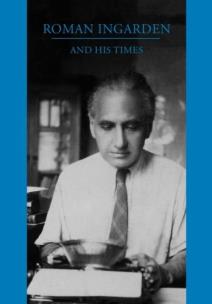- Regulamin
- Koszty dostawy
- Kontakt
- Dziś w ofercie 237 357 produktów
KSIĄŻKI
- Albumy
- Beletrystyka
- Biografie
- Dla dzieci i młodzieży
- Edukacja
- Ekonomia i biznes
- Ezoteryka
- Historia
- Informatyka
- Kalendarze
- Komiksy
- Kryminał i sensacja
- Kultura i sztuka
- Literatura faktu
- Literatura kobieca
- Literatura piękna
- Medycyna
- Nauka języków obcych
- Nauki humanistyczne
- Nauki przyrodnicze
- Nauki ścisłe
- Podręczniki
- Poradniki
- Prawo i administracja
- Przewodniki i podróże
- Psychologia
- Religia
- Sport
- Technika
- Zdrowie i uroda
ZABAWKI
- Artykuły dla niemowląt
- Bączki
- Bujaki i skoczki
- Ciągnij / pchaj
- Dla niemowlaka
- Grzechotki i gryzaki
- Karuzele i pozytywki
- Maty i centra zabaw
- Projektory i lampki
- Sortery i piramidki
- Zabawki
- Edukacyjne i kreatywne
- Figurki
- Klocki
- Lalki
- Pojazdy
- Pluszaki i maskotki
- Sport i rekreacja
- Zabawa w dom
- Zabawki drewniane
- Puzzle
- Do 200 elementów
- 201-500 elementów
- 501-1000 elementów
- Ponad 1000 elementów
- Puzzle 3D
ART. PAP
- Artykuły biurowe
- Artykuły piśmiennicze
- Bloczki i kartki samoprzylepne
- Dziurkacze
- Kalkulatory
- Nożyczki i nożyki
- Skoroszyty
- Teczki
- Wizytowniki
- Zszywacze
- Artykuły szkolne
- Akcesoria szkolne
- Modelowanie
- Notatniki i zeszyty
- Piórniki
- Plecaki i torby
- Pojemniki na śniadanie
- Pomoce naukowe
- Przybory matematyczne
- Przybory rysunkowe
- Upominki i gadżety
- Akcesoria do książek
- Artykuły balowe
- Breloki i zawieszki
- Drobiazgi, różności
- Kubki
- Oferta Świąteczna
- Papeteria, kartki i naklejki
- Skarpetki Many Mornings
- Upominki
GRY
MULTIMEDIA
- Audiobooki
- Beletrystyka
- Biografie i wspomnienia
- Dla dzieci i młodzieży
- Fantastyka
- Filozofia i religia
- Historia
- Literatura faktu i reportaż
- Poradniki
- Sensacja i kryminał
- Filmy DVD/BD
- Animowane
- Biograficzne
- Fantasy
- Horrory
- Komedie
- Romanse
- Science Fiction
- Sensacyjne / kino akcji
- Thrillery
- Muzyka CD
- Alternatywna
- Blues
- Dla dzieci
- Jazz
- Klasyczna
- Piosenka aktorska i poetycka
- Pop
- Rock
- Świąteczna i kolędy
- Akcesoria GSM
- Głośniki
- Kable i adaptery
- Klawiatury
- Myszy
- Słuchawki
PROMOCJE
ZDROWIE
LEGO

Roman Ingarden and His Times
Autor: praca zbiorowa
Wydawca:
Księgarnia Akademicka
ISBN:
9788381381031
EAN:
9788381381031
oprawa:
oprawa: broszurowa
język:
angielski
liczba stron:
277
rok wydania:
2020
(0) Sprawdź recenzje
Opis produktu
Zasady bezpieczeństwa
The papers collected in this volume vividly reflect the strikingly wide range of interests characterizing current research in phenomenology inspired by Roman Ingarden. One of Husserl's closest and most devoted students, and at the same time one of his earliest and sharpest critics, Ingarden himself explored numerous fields of philosophy in considerable depth. While he remains best known for his groundbreaking work in aesthetics, ontology, and metaphysics, he also dealt extensively in ethics, epistemology, philosophical anthropology, and cognitive science, and his work was characterized throughout by a deep and abiding interest in the sciences and an unwavering respect for painstakingly thorough logical investigation. Issues from all of these areas of study provide the topics dealt with by the authors contributing to this volume. Several authors focus explicitly on historical matters, often casting surprising new light on the development of early phenomenology in general and of Ingarden's own realist' phenomenology in particular. Other authors have concentrated instead on specific areas or particular topics of long-standing interest, such as the aesthetic experience, the philosophy of music, and artistic creation, while others have explored the relevance of Ingarden's ontological and anthropological analyses to current research into everything from the interpretation of texts to the study of technological posthumanization. With contributions from both established experts and young scholars, this collection brings together three generations of researchers who share the same basic philosophical goals and methodology, yet exhibit noticeably distinct styles, making this collection not only accessible and topical but also unusually lively.
CENA:
30,28
zł
Cena detaliczna:
38,00 zł
20%
rabatu
Najniższa cena z ostatnich 30 dni: 30,32 zł
Produkt niedostępny
Uwaga!!!
Ten produkt jest zapowiedzią. Realizacja Twojego zamówienia ulegnie przez to wydłużeniu do czasu premiery tej pozycji. Czy chcesz dodać ten produkt do koszyka?


Wybierz wariant produktu
